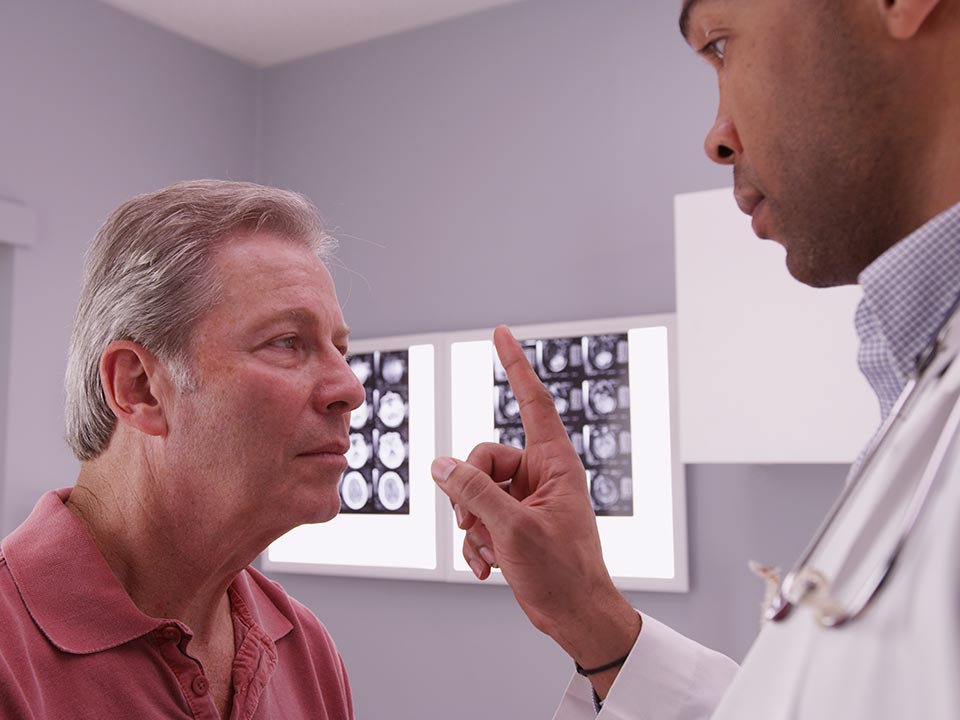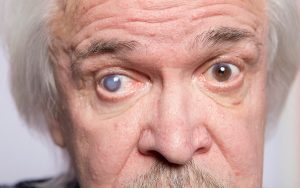Head Injuries And Vision

How is a head injury related to your vision? Can you experience eyesight problems when you have an injury to the head? Must it be a severe head injury to cause vision problems?
These are questions you may have found yourself asking after you or someone else got an injury to the head and experienced vision-related symptoms. The information below seeks to answer some of these questions, hopefully putting your mind at ease.
Does Head Trauma Affect Vision?
The brain is a complex organ that controls thought, memory, emotion, touch, motor skills, and every process that regulates our body, including eyesight.
Head trauma can therefore affect your eyesight. The brain is responsible for processing any information related to vision. Even a light bump can interfere with the flow of information. It is why medics treat concussions seriously.
If you suffer a concussion or head injury, you should go to the emergency room or see a doctor immediately. Similarly, you should consider scheduling an appointment with an optician to check if your vision has been affected.
You should never ignore even the slightest of head injuries. Even whiplash can cause severe damage to your vision if you go unchecked. Multiple medical reports show that more than 70% of concussions patients face serious vision problems. Adolescents have a high risk of vision loss due to head injuries.
Understanding Vision and The Brain
Vision is not just the ability to see. It also refers to how our brain makes sense of what we see.
Good vision is essential for other body systems and their proper functionality—for example, balance and movement. A slight issue with the visual system would lead to dysfunction.
A traumatic brain injury can affect your vision. The severity of the effects depends on the injury location. The injury messes with your vision by impairing some parts of the brain that process visual information.
The occipital lobe is the vision center. It is the part of the brain that observes and processes data sent from the eyes. It is located at the back of the brain, near the skull. Head injury near this area often leads to visual-related issues and may even cause blindness.
But since other parts of the brain help to ‘make vision work,’ trauma to different brain locations can lead to vision-related symptoms.
How Head Trauma Affects Eyesight
A slight knock or injury on the head should warrant serious concern for your brain and vision. Ironically, most cases of visual problems are often overlooked during the initial stages of treating a brain injury.
If you experience a head injury, do not ignore vision problems. Though you may not notice them immediately, symptoms that head injury may have affected your vision include:
- Blurred vision
- Double vision
- Eye pain
- Sudden light sensitivity
- Decreased peripheral vision
- Complete loss of sight in one or both eyes, depending on the severity of the injury.
Traumatic brain injury may also inhibit your reading ability even when wearing glasses. Some patients also report still objects appearing like they are moving.
In more severe cases, visual problems caused by head trauma may affect your posture and balance. The earlier you detect any visual impairment, the less severe the consequences will be. Note that some can cause blindness, so quick action is necessary.
Vision Problems Related to Head Trauma
There can never be a brain injury without head trauma, so patients with head injuries are likely to suffer brain damage, which may lead to vision problems. Symptoms include:
Visual Field Loss
When you experience visual field loss, it means that vision in some areas is not as sensitive as it should be. In most cases, the vision is lost in a small area, partial or complete. So how do you know you have visual field loss? If you unintentionally bump into objects, are easily struck by approaching objects, or suddenly fall, you may have this problem.
Eye Pain and Headaches
A burning or itching feeling around the eye, which goes away after a short time, should not scare you. However, you should consult a doctor if it is a recurring burning feeling accompanied by a dull ache around the eye. It will also manifest with unending headaches and eye redness.
The headache might persist even after weeks of head injury, making it difficult to handle everyday tasks comfortably.
Sensitivity to Light
When you have a head injury that affects the brain, you may experience increased light sensitivity and a general inability to tolerate glare. Sensitivity to light, also known as Photophobia, can be aggravated by specific light sources such as bright sunlight and LCD screens. Fluorescent lights can also be bothersome after experiencing head trauma.
Strained Eye Movements
Some patients will have trouble following a moving object. Others will also lose their place easily when reading, especially minimally-spaced text. This may result in the need to increase text size on devices.
Motion Sensitivity
Head trauma can make you struggle to process motion properly because of the disconnection between vision integration and the balance system. Patients often experience motion sickness when traveling, dizziness when scrolling through a device, or in busy environments like bus stations.
Visual Memory Loss
Some patients will also lose their visual memory after head trauma. You may have trouble recalling data stored in short and long-term visual memory. So, you will be unable to recognize images, videos, or information you saw in the past.
Some people cannot recognize faces and will struggle to understand words when reading since they do not recognize them.
When To See A Doctor After A Head Injury
You must treat injuries to the head seriously– seek medical help as soon as possible.
However, in some cases, you can proceed with first aid, then followed by a visit to the doctor. This often happens during sports games. Even so, pay serious attention to any severe symptoms such as:
- Numbness or tingling.
- Intense headache that does not go away.
- Loss of consciousness that lasts longer than normal.
- Repetitive vomiting.
- Neck pain.
- Vision loss.
Even though head injuries are not always serious, you should always consult a doctor to avoid preventable issues. Similarly, ensure you visit our clinic for immediate eye checkup after suffering head trauma.




